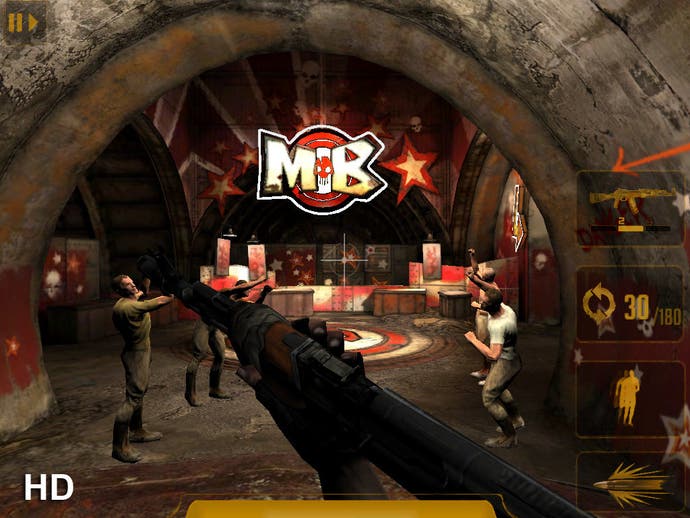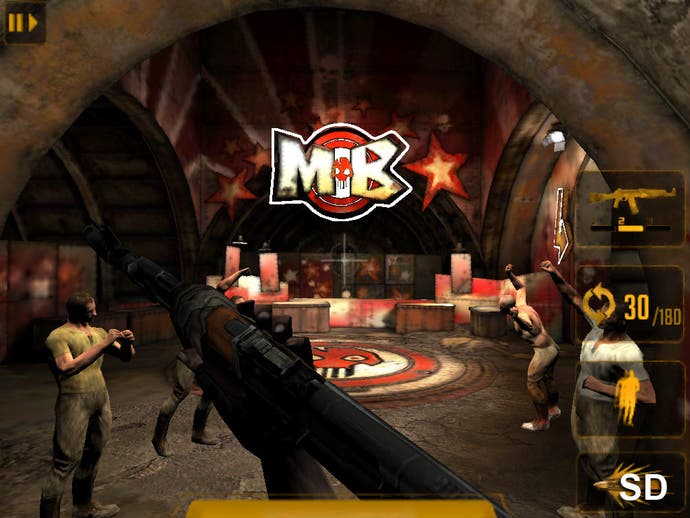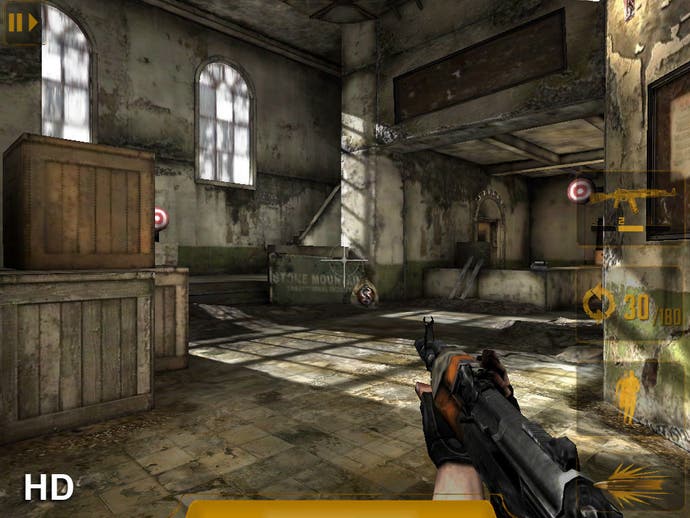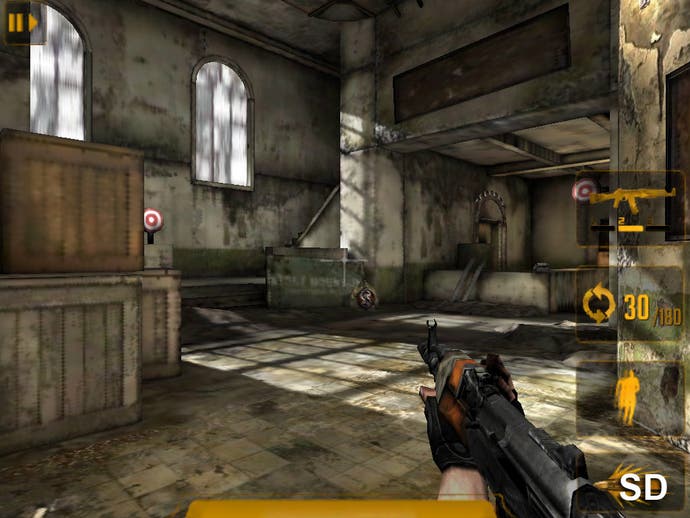Tech Analysis: RAGE HD
Digital Foundry on Carmack's latest iOS side-project.
iPhone games have traditionally been concept-driven as opposed to relying on state-of-the-art visuals to really make an impression. id software's John Carmack has been a long-time advocate of the Apple platform, and has sought to push the limits of the tech, first with the visually impressive DOOM Resurrection, and now with a smaller slice of on-rails shooting action excised from forthcoming multi-platform FPS title, RAGE.
There are two SKUs for RAGE on offer on the App Store. RAGE HD is optimised for high-definition iOS platforms, so provides a significantly superior level of image quality on iPhone 4 and iPad, while the standard RAGE with noticeably cut-down textures and associated effects is designed for the older iOS devices without high-definition screens. Interestingly though, you can still run the cut-down game on the iPad and iPhone 4 if you really want to, and it's fairly obvious where the compromises have been made.
The comparison exercise between the two platforms also illustrates that many effects, such as environmental shadows, are pre-baked into the texture artwork, so they are present on the lower-end devices but just running at a lower resolution. Characters themselves have their own dynamic shadows: they're low-res but they do correspond to the shape of the character as opposed to being simple black blobs.
Interestingly, id's John Carmack recommends running the base-level RAGE on the iPhone 3GS, saying that the HD version will work but runs with some level of impact on performance.
"We wanted to make the HD version only for iPad and 4G, but there was no way to prevent a 3GS from buying it. We wanted a selector base either on ram > 128 or resolution > 480, but no such option exists," Carmack posted on TouchArcade.
"The 3GS will hitch a bit more playing the HD version, and the extra resolution doesn't matter much on it, so I recommend 3GS owners get the SD version unless they think they are going to upgrade soon. Cut down the monster download... If you play the SD version on an iPad, you will complain about the blurry graphics blown up so large, but it works fine."
Here are a couple of comparison shots illustrating the difference with the two versions running on iPad.




Speaking of performance, RAGE also has a rather interesting party trick. You can attach a component or VGA adaptor to the iOS device and run the game on an HD display. This does present some issues: movies don't appear to work on the display output, and while gameplay works fine, you need to operate the buttons blindly as the iPad display itself is turned off for the duration. Carmack has talked about an upgrade to render the buttons only on the iPad screen, which seems like a sensible compromise. Also notable for iPad owners is that the 1024x768 native rendering resolution is resized to 1280x720 for monitor display, with the aspect ratio adjusted accordingly.
Proper, full-on cloning allowing for both displays to be active isn't really possible. The iOS devices treat the external display as an entirely separate output, so running both iPad screen and external display essentially requires rendering the scene twice, putting a massive burden on the SGX graphics chip. This is why the Jailbreak display-out solutions tend to affect game frame-rates significantly.
However, the display output does allow us to produce our very first iOS performance analysis. We don't have the purity of a clean, digital HDMI signal to work with, but all iOS apps are v-synced, so frame-rate tests are relatively simple - you compare one frame to the next and factor out the tiny bit of analogue "noise" that differentiates what are otherwise unique frames.
So what we have here with the iPad version is a pretty solid 30 frames per second, sometimes with some additional frames creeping in, but with a good, consistent performance level overall.
There has been talk of a 60FPS refresh. It's worth pointing out that we don't have the iPhone 4 here to test, but it's entirely conceivable that frame-rates would increase. The phone operates with a native resolution of 960x540, while the iPad gets a 51 per cent resolution boost up to 1024x768. What is unknown right now is the respective clock speeds of the A4 chip (and the IMG GPU in particular), and whether the iPad runs any faster than its cellular sibling.


